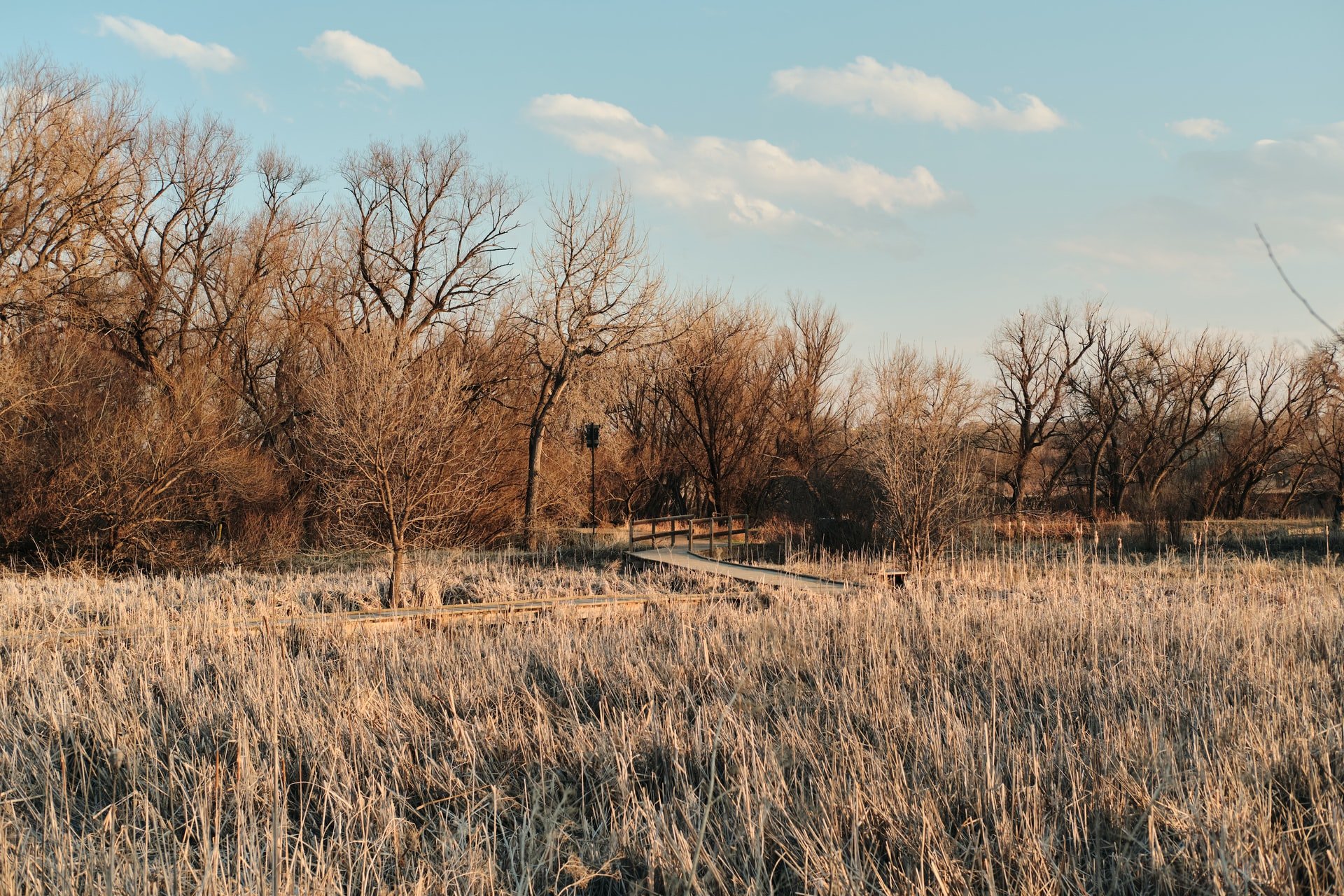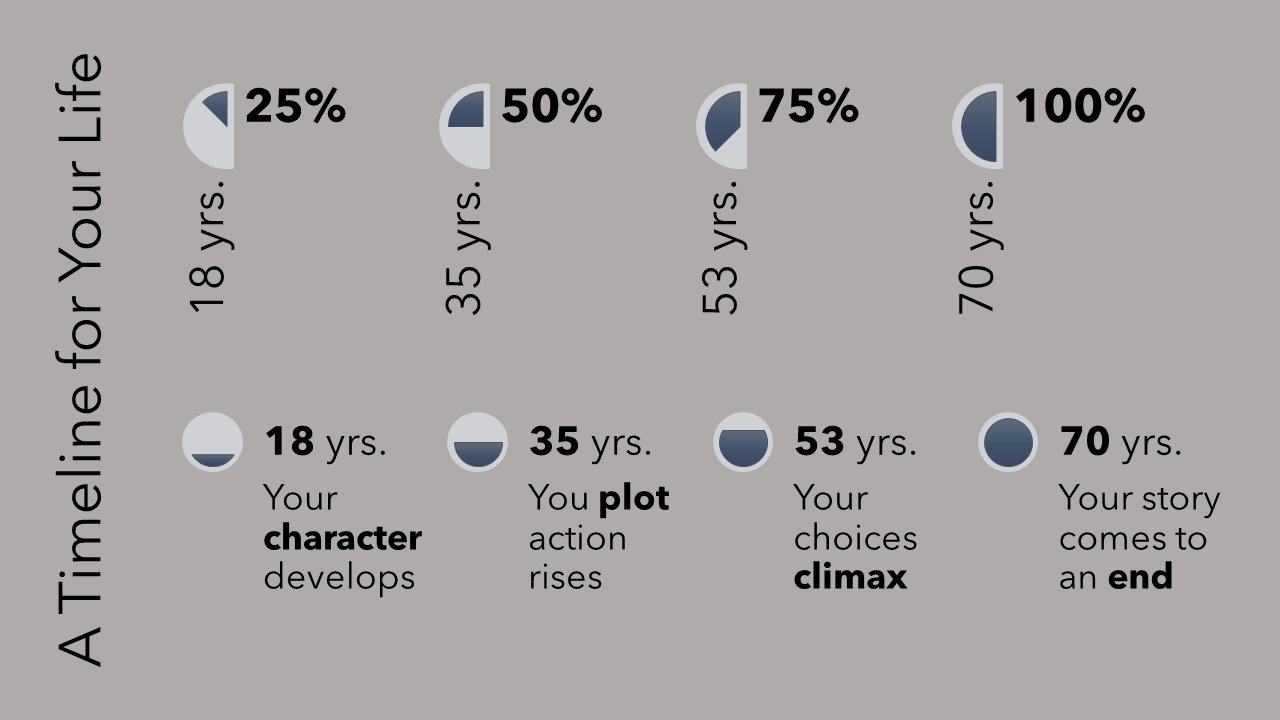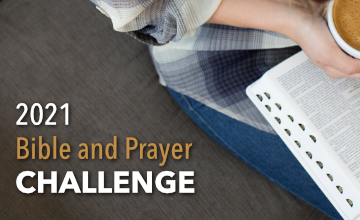A Life that Counts for God
Psalm 90:1-17
As we glance over our shoulder at 2020, what should we think?
In some ways it feels like we’ve been riding a new and bigger roller coaster at the amusement park and are just about to get off. The ride was longer and scarier than we’d all expected, and the thrills were more intense than we wanted them to be, so we have no plans to get in line again for another ride on this coaster any time soon. We’d rather ride the Ferris Wheel or Log Ride this time around, not another roller coaster like this one.
Moses looked back at not 1 but 40 disappointing years.
In the Old Testament (OT), Moses shared similar feelings in Psalm 90:1-17. He most likely wrote these words glancing over his shoulder at Israel’s forty years of wandering in the wilderness. His journey into the wilderness had begun with great anticipation. Ten plagues, parting the Red Sea, an encounter with God at Sinai, and bread from the sky. All this and more pointed towards a bright and glorious future for Israel – until their journey to the Promised Land came to a screeching halt.
The Israelites complained to the Lord and rebelled against Moses one time too many, so God issued some serious consequences for their failure to trust him (Numb 14:32-33).
Your carcasses shall fall in this wilderness. And your sons shall be shepherds in the wilderness forty years, and bear the brunt of your infidelity, until your carcasses are consumed in the wilderness.
Numbers 14:32-33
Why 40 yrs.? The answer had to do with counting how many days they scouted out the Promised Land before wrongly concluding God could not give it to them (Numb 14:34).
According to the number of the days in which you spied out the land, forty days, for each day you shall bear your guilt one year, namely forty years, and you shall know my rejection.
Numbers 14:34
Near the end of these 40 yrs., God even barred Moses from entering the Promised Land because he’d lost his temper with the Israelites on one notable occasion (Deut 32:48-52). So, in many ways, Moses’s journey through the wilderness with the nation of Israel turned out to be a big letdown, much like the year 2020 has been for us. It began with enthusiasm but ended in frustration.
In Psalm 90, Moses tells us how he felt about this unfortunate series of events and how he wanted the nation of Israel to feel about these events as well. Though the psalm is sober and realistic, it’s also hopeful and optimistic.
Moses wrote this psalm as a prayer to God. It begins and ends with a focus on God, both in the past (Psa 90:1-2) and the future (Psa 90:13-17). Sandwiched in the middle is a close look at people – their problem (Psa 90:3-10) and their need (Psa 90:11-12).
Since life is more fragile than we realize, we need God’s help to make it count for him.
Main Thought
We serve the everlasting God (Psa 90:1-2).
Moses begins his prayer by focusing on two important truths about God, one is a fact and other is an act. The fact is that God is everlasting. The act is that God created the world.
Moses affirmed that as everlasting, God has no beginning or end. He never came into existence and he will never go away. What’s more, he is not only eternal, but he is eternally God. There has never been a time in which he wasn’t God. He has always existed and he has always existed as God.
Moses not only affirmed that God is everlasting, but that as God he had brought the world and its ancient, majestic mountains into existence. What a feat that is!
Though Moses wrote this psalm for the nation of Israel, we know he had more than Israel in mind because of his reference to creation and “all generations” dating back to the beginning of time (Psa 90:1). Though the nation of Israel began to take shape with Abraham about six centuries before Moses, people of faith like Abel, Enoch, and Noah had followed God from the beginning of time. Moses identifies himself with this long lineage of people who had followed God by faith from the beginning of time. This line of people continues forward to us today.
Though God is eternal, we are fragile (Psa 90:3-6).
Moses contrasts the eternal, everlasting nature of God with the temporal, fragile nature of people. And just as if I tried to compare an off-brand Matchbox car to a genuine Lamborghini, or a small pile of Legos to the Burj Khalifa in Dubai, there’s no comparison. God is all-powerful and eternal, but we are fragile and temporal.
To help us comprehend this extreme comparison, Moses gives us two different ways of looking at 1,000 yrs. To us, 1,000 yrs. is a long time – a millennium, 10 centuries, and nearly 15 generations. But to God, 1,000 yrs. is like:
- Looking back at a single day of our life.
- A partial night shift (so not even a full night).
- A flash flood that sweeps through then disappears.
- A night of sleep that’s over before you know it.
- Grass in the desert that pops up in the morning and withers away in the evening.
Consider 2020, for instance. According to mortality numbers, the U.S. will top 3 million deaths for the first time in history, and our death toll will rise over last year by approx. 15%. This will be the largest year-to-year jump since 1918, when the death toll jumped by 46% due to WWI casualties and a deadly flu pandemic.
How does this fragility happen? It’s not just a result of natural causes but because the same God who created us from dust returns us to dust. “He turns man to destruction,” Moses says, (Psa 90:3), but why? Why does he do that to us? Why did he decide that an entire generation of Israelites will die in the wilderness? Why did he decide that more than 3 million people will die in America in 2020.
We are fragile for a reason (Psa 90:7-10).
The brevity and fragility of our lives is not an accident or mistake on God’s part. It’s a deliberate choice that he makes for a reason. It’s due to his just and righteous anger and wrath towards the public iniquities and private sins we’ve willfully committed against him.
Though God created us to live and enjoy him forever, like Adam and Eve in the beginning, like the people before the Flood, and like the nation of Israel in the wilderness, we rebel against him instead. We do our own thing, pursue our own desires, and complain about our situations an awful lot.
In fact, since our sins are always there (whether in public or in private), God’s wrath is always there as well. There’s never a day or moment when God’s wrath against sin disappears. It’s always there, and that’s why our lives end with a sigh rather than a celebration.
T. S. Eliot ended his poem, The Hollow Men, with a similar description to the one Moses used did here when he said we end our lives with “a sigh.” Eliot said,
This is the way the world ends
This is the way the world ends
This is the way the world ends
Not with a bang but a whimper.
T. S. Eliot
We make a big deal these days about increasing our lifespan, don’t we? We want to live as long as possible. According to mortality numbers, we increased our life expectancy by about 6 wks. in 2019 to 78.8 yrs., according to CDC. Now, only 1 yr. later, it looks as though our life expectancy may actually fall by as much as 3 yrs. down to 75.8 yrs.
It’s remarkable how closely these numbers align with what Moses said about 3.5 millennia ago (which is only like 3.5 days to God). He said God has fixed the average life expectancy at approx. 70-80 yrs. and despite our medical advancements since then, we’re still in the same range. This fact shows God’s eternal control over human life.
For our lives to count, we need God to teach us (Psa 90:11-12).
So, is 70 yrs. a long time or not? The best answer is probably ‘not,’ though the younger you are the longer it seems. Plug your own age into the following diagram for instance:
You can also look at this diagram from a dramatic standpoint, with each quarter marking a different stage in the story of your short life. This is a sobering perspective, isn’t it?
After considering this objective perspective, you might say, “But what if I live 80 yrs. instead of 70?” That’s a valid question, of course, because Moses mentions this possibility and after all, the current life expectancy in the U.S. is closer to 80 anyway.
Yet this is not the best question to ask, for Moses asks a better one. “Who knows the power of your anger?” (Psa 90:11). The point here is that just because the normal life expectancy is about 70 yrs., we may actually die sooner, too. God’s anger may shorten your life even more than the normal lifespan of 70 yrs. That’s nothing to take lightly.
Since our lives will not only 70-80 yrs. long but may actually be shorter (we can die at any moment), we need God to teach us. Rather than embrace our sin and its consequences (digging in with more complaining, rebellion, and selfishness like the Israelites did in the wilderness), we should embrace God and his wisdom instead.
Though God has shortened our lives due to our sin, he still desires for our lives to count for him. “To number our days” speaks about forming a clear, objective perspective about life. We should live with a clear timeframe and goals in mind, a timeline that matches God’s timeline as best we can tell and goals that are based on God’s wisdom.
Are we wasting our lives by pursuing our own selfish ambitions and dreams with no big picture perspective, or are we making steady progress through the storyline of our lives, following God’s wisdom each step of the way? The end of a year and the start of another is a good time to ask this question, esp. after a crazy year like 2020.
Hope for the future begins with renewed closeness to God (Psa 90:13-17).
Life is short, that would never change. They failed in the past, and that would never change either for Moses and the nation of Israel. Yet despite this dismal past, Moses longed for something better.
- He prayed for God to return to them with compassion and mercy.
- He prayed for God to help them to celebrate and feel glad the remainder of their lives.
- He also prayed for the next generation of Israelites to enjoy a life of more joy and wisdom than their parents had experienced, a life marked more by God’s beauty than his wrath, and for their efforts to make a long-term, God-sized difference rather than be wasted away as their parents’ had wasted their lives in the wilderness.
Yes God’s wrath against sin is a serious, sobering reality, but his mercy to those who turn to him for deliverance, joy, and wisdom is also a major opportunity to embrace. We don’t have to resign ourselves to sinful, useless lives. We can return to the Lord and experience his forgiveness and mercy. Then we can make what’s left of our lives count for him.
As we look back at 2020, like Moses looked back at Israel’s wanderings in the wilderness, we see what appears to be a vacuum in time. Yet what has happened with COVID and so on is not a mistake. It’s been a sovereign act by our eternal God that reminds us of our sinfulness and the brevity of our lives. It reminds us that we’re not in control and that God’s wrath against our sin is real. So, how should we respond?
How can we make our lives count for God?
We should *not* respond by simply hoping that we can return to life as normal. This mindset assumes that everything was fine before with no need for improvement.
Instead, we should “number our days” and “apply our heart to wisdom.” To number our days, we must take a close, realistic look at where we’re at in the timeline of our lives. This sobering perspective helps us focus on what’s most important rather than wasting away our lives in sin, selfishness, or meaningless activity.
To apply our heart to wisdom, then, requires us to make regular choices that reflect God’s priorities rather than our own. To help with this, let me recommend the following two steps:
- Follow a weekly Bible reading plan (for a realistic plan and helpful resources, click here)
- Follow a weekly prayer guide (for a helpful, one-page guide sheet, click here)
A Bible reading plan gives you a regular diet of God’s wisdom.
It’s not possible to use your hours and days in a godly way without regular reading and thinking about his Word, and though a weekly sermon and Bible study with your church is essential, it’s not enough to “gain a heart of wisdom” as you need. To “gain a heart of wisdom,” let me encourage you to set aside 10+ mins. a day to read (or listen to) and reflect on a chapter of the Bible. Write down (or record) something you’ve learned Monday thru Friday, then review those thoughts on Saturday.
A weekly prayer guide draws you closer to the Lord on a regular basis.
Again, worshiping and serving the Lord together with your church each Sunday is essential, but it’s not enough to establish a joyful, meaningful life that counts for God. Let me encourage you to set aside 10+ mins. a day to talk with God about important things. This prayer guide will help you do that. The ritual itself won’t accomplish anything significant, but if you speak to God from your heart in genuine humility and trust, then you’ll have the confidence of knowing that God will establish your work throughout the day.
No matter what happens in 2021, strengthening these priorities will go a long way towards using our time in a wise and godly way, towards living in a way that will count for God rather than waste away under God’s wrath.
Is your life in the middle of the book, the last chapter, last paragraph, last sentence, last phrase? We'll all wake up one last time, go to bed one last time, eat a good meal one last time, watch a ballgame or movie one last time, go to church one last time, and hug your spouse, parents, and children one last time. But let’s not speed up this process through our sins. Let’s let God teach us how to make our days count for him.



